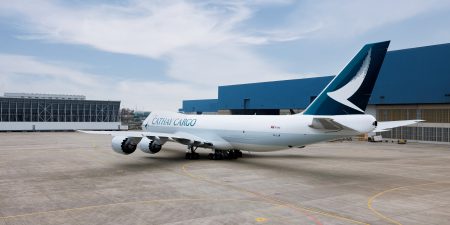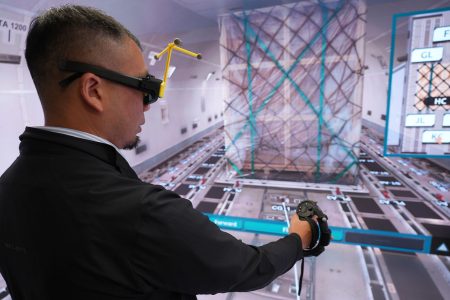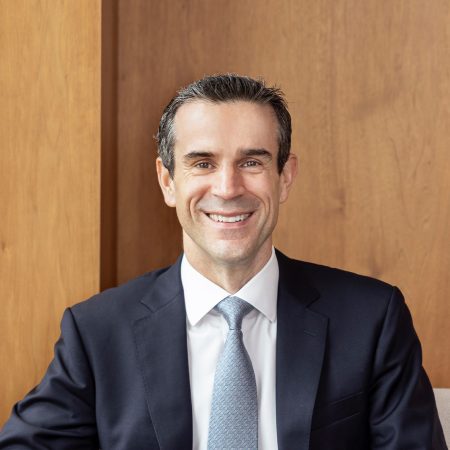The first courses to start using the VR CAVE this summer will be initial training for people new to Super Heavy Cargo Handling , followed by tie-down training. This involves working according to the tie-down plans sent to hand-held devices via the HeavyPro app, part of the suite of solutions in the Cargo Connect app. The CAVE provides tailored modules that demonstrate different cargo securing angles, fitting points and safety procedures in a controlled environment, promoting continuous improvement. Crucially, people can learn from their mistakes without any real-world consequences.
“The Cargo VR CAVE is a transformative leap in Cathay’s training evolution – turning complex concepts and procedures into intuitive, hands-on experiences,” says Tim Wong, General Manager Cargo Service Delivery. “By merging cutting-edge technology with risk-free learning, we’re not only enhancing safety and efficiency today but also empowering our people to excel in an increasingly complex industry.”
The possibilities are endless
In time, the CAVE could serve as the setting for any scenario that can be projected into it. “Based on business needs, we have the potential to explore different areas of cargo operations, such as dangerous good handling,” says Yu.
This summer, a new cadre of students will work on expanding the current repertoire of scenarios and loads. There are already pallets and aircraft engines modelled on the real things, but Cathay Cargo carries a diverse mix of big shipments. What’s more, says Yuen, the CAVE is not limited to the freighter aircraft environment. “It could be a warehouse environment; it could be a ramp environment,” she says. “Whatever the areas are that people need training support, we can build the content accordingly.”
While the CAVE is too big to move, the team is examining the possibility of introducing VR headsets for remote staff. “We have the capability to put the same content in a headset device like the Oculus [now Meta Quest], so people in the regions eventually could be supported with the same content,” says Yuen. “We really think the potential is there.”
Other plans under discussions include working with HKU on a paper on the efficacy of immersive training and gamification in training. “You say ‘VR’ to people, and they immediately think of gaming, so we want to publish a paper to show the benefits this sort of training brings to learning effectiveness,” says Yuen.
But for now, the VR CAVE is bringing a new dimension to training. “This new facility offers an engaging, realistic and exciting way to learn that will enhance our safety and ensure we achieve the operational excellence that we strive for at Cathay Cargo,” says Director Cargo Tom Owen. “There is ever greater complexity on the operational side of the cargo world, so anything that we can do to make learning more interactive and enjoyable by using state of the art virtual reality tools, is going to be a welcome step forward for our people.”








